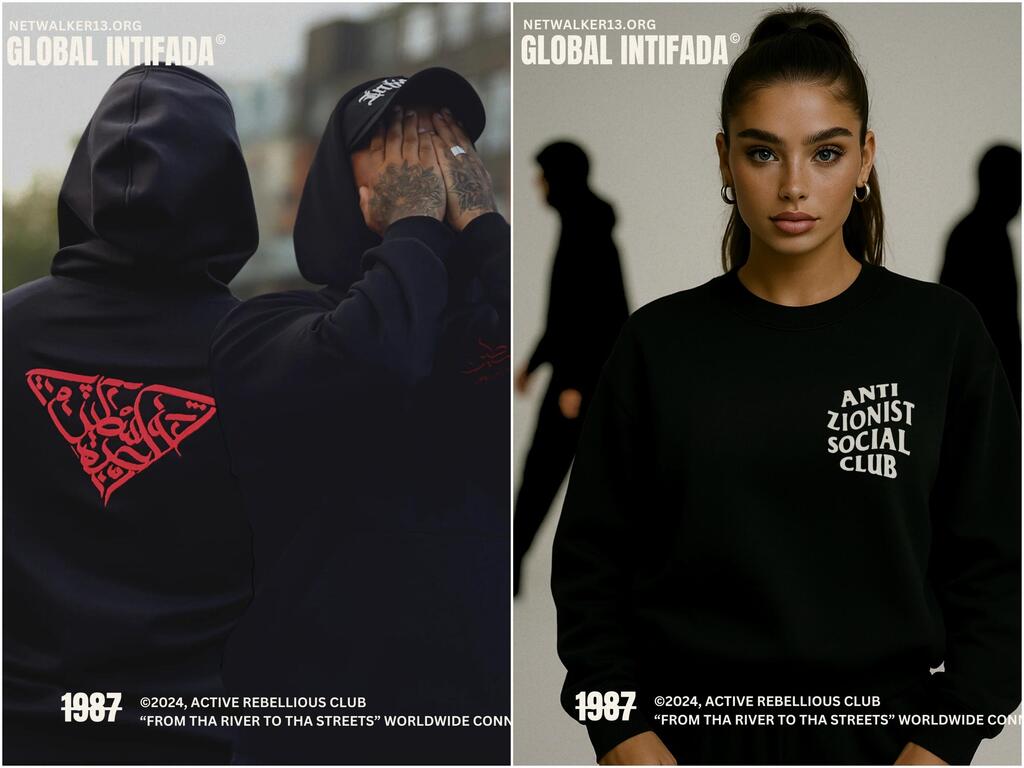Notably, shipping to Israel costs an additional 58 shekels ($15)—a move the site cynically frames as “refusing to sell to Zionists.” One design superimposes Abu Obaida’s face (also known by his alias “Al-Khalifa”) over a map of Israel on a black T-shirt.
Other items include multi-colored sweatshirts emblazoned with “Anti Zionist Social Club,” tapping into the “country club” aesthetic trend popularized in U.S. streetwear.
Public spaces in Europe and the U.S. have increasingly become platforms for anti-Israel rhetoric and terrorist glorification, impacting Jewish communities worldwide. While politically charged fashion isn’t new, social media has amplified its reach and speed.
Today, anyone can launch an online store targeting global audiences overnight. In Israel, public discourse has been flooded with pro- and anti-war messaging on billboards, stickers, social media and protest T-shirts since the October 7 attacks and the ongoing war—now mainstream wardrobe items.
Parallel markets have emerged: Some designers and organizations sell merchandise on independent sites and platforms like Amazon, featuring anti-Israel slogans or figures ranging from hijacker Leila Khaled (involved in the 1970 TWA flight seizure carrying Israelis) to Abu Obaida.
Netwalker13’s branding merges contemporary fashion aesthetics with militant rhetoric, declaring its mission a “worldwide connection” for an “active rebellious club” from “tha river to tha streets.”
The promotion of terror-related figures on fashion merchandise raises complex legal questions. While some countries protect the sale of such products under free speech laws, others may consider it incitement or support for terrorism.
In the case of the Danish website, the activity may violate local law: Denmark criminalizes hate speech under Section 266b of its penal code, which prohibits threats or ridicule against religious and ethnic groups, and also bans the promotion of terrorism.
Given that Hamas is designated as a terrorist organization by the European Union, selling items featuring images of its spokesperson and slogans calling for an intifada could constitute a violation of Danish law. However, actual enforcement depends on Denmark’s public prosecutor and police. Major online sales platforms like Amazon must also navigate between their content policies and local regulations.
Efforts to identify those behind the website have yielded no results—though this is not unusual. Many projects pushing political agendas choose to operate under a brand name rather than publicly disclose identities, often to protect privacy, for security reasons or out of ideological considerations.





